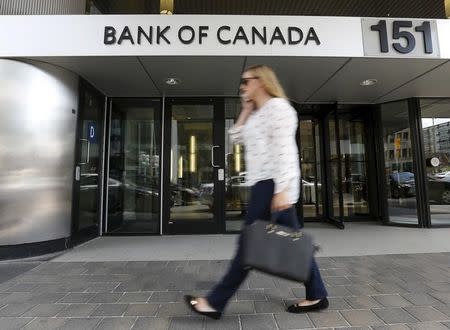Bank of Canada sees debt levels stabilizing as economy improves

OTTAWA (Reuters) - Lower mortgage rates are contributing to strong growth in household borrowing, particularly in Ontario and British Columbia, but the housing market and debt levels should stabilize as the economy gains strength, the Bank of Canada said on Wednesday. As part of its Monetary Policy Report, the central bank reiterated that housing market activity across regions is characterized by a "trifurcation", with the commodity-sensitive provinces weakening, the west coast and Ontario maintaining its strength, and activity in the rest of the country soft. The lower cost of debt is also supporting other forms of consumer credit growth and spending, with consumption resilient despite the hit to incomes from lower commodity prices, the bank said. Canadians' debt-to-income ratio is at a record high. After the bank cut interest rates twice this year, one of the concerns from observers has been the possible overheating of the housing market, particularly in Toronto and Vancouver, but the bank appeared sanguine about this. "As financial vulnerabilities in the household sector continue to edge higher, risks to financial stability are evolving as expected," it said in its interest rate statement, in which it held its overnight rate at 0.50 percent. The bank expects the housing market and household indebtedness will stabilize over the next two years as the economy recovers momentum and as household borrowing rates start to normalize. Still, the bank noted amid the risks to its outlook that if there were a disorderly unwinding of imbalances in the household sector - for example, from further resource weakness or a rapid rise in global interest rates - there could be "sizable negative effects" on the economy. (Reporting by Leah Schnurr, editing by Randall Palmer)

 Yahoo Finance
Yahoo Finance 